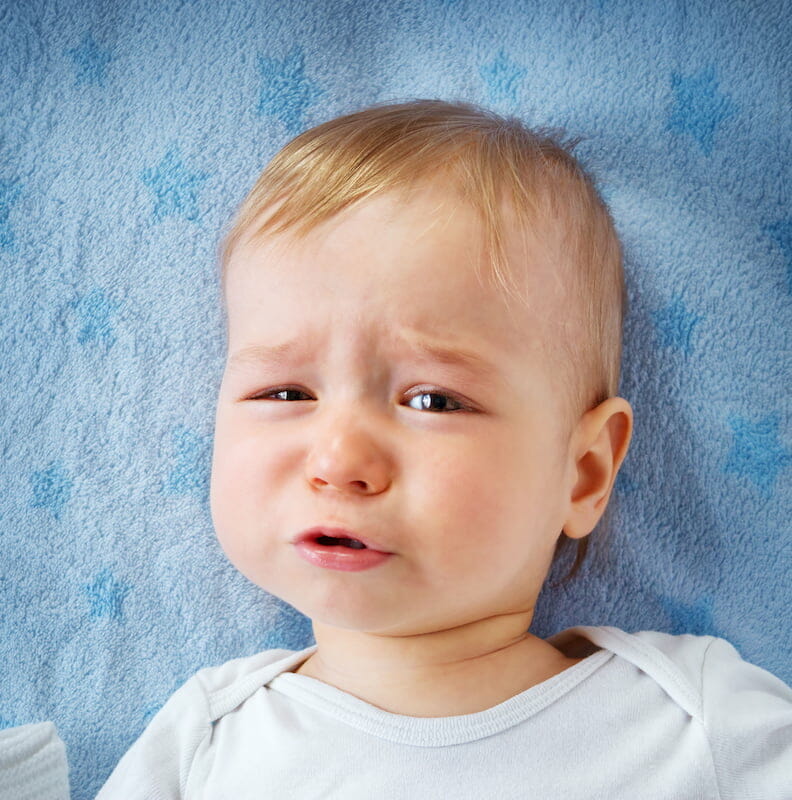Common Allergies in Children
There are many common allergic conditions which could affect your baby from an early age. So how do you spot a problem? How can you help to relieve symptoms? And when should you see a doctor?
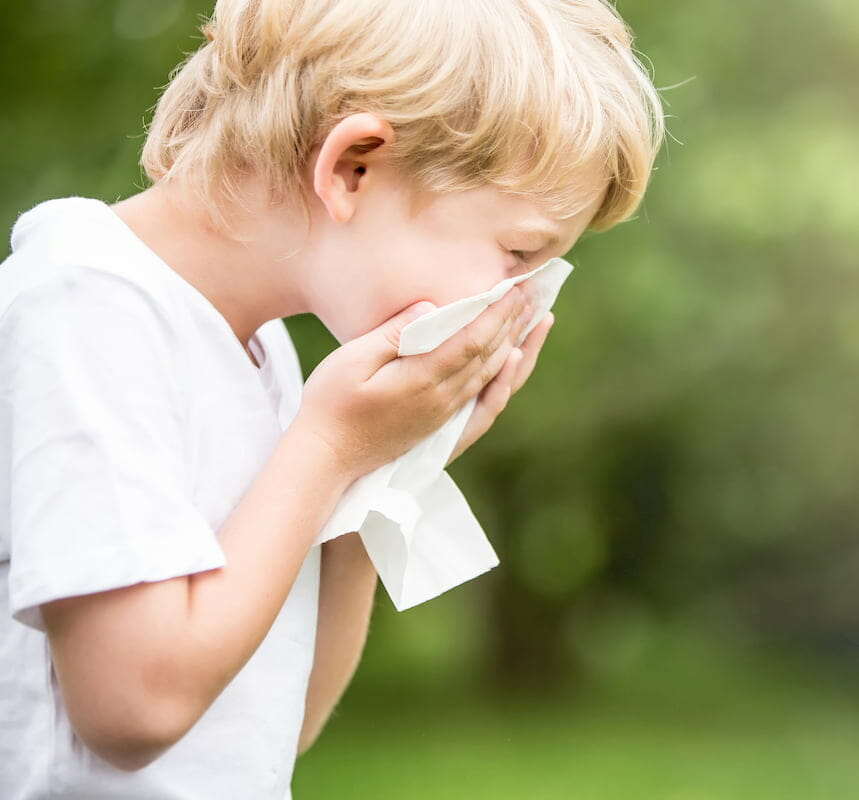
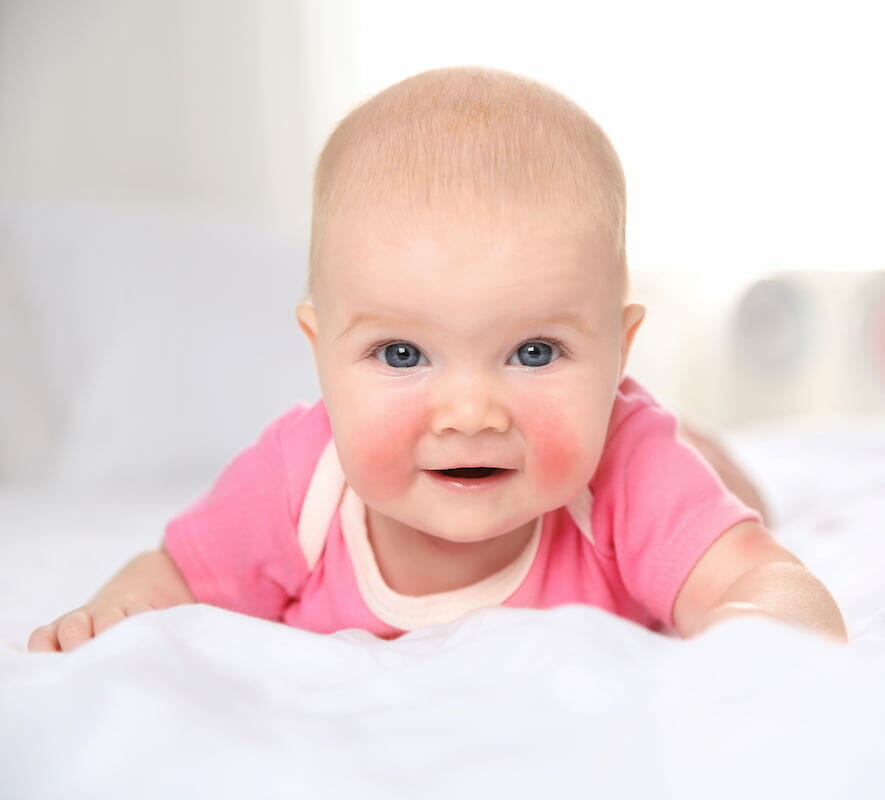
What are the most common allergies for babies and young children?
Allergies are very common. They’re thought to affect more than 1 in 4 people in the UK at some point in their lives. Some allergies can be successfully identified and managed at an early age if you know how to spot the signs. The following conditions are among the most common allergies in babies and young children:
Food allergies – your child may be allergic to foods such as cow’s milk (cow’s milk protein allergy), peanuts, egg, fish or soy.
Eczema – which is a condition that involves the inflammation, reddening and cracking of patches of skin. In general, it is most noticeable on the cheeks and the outside of your baby’s arms and legs in the first few months.
Hayfever – an allergy that is caused by pollen or dust, involving the inflammation of mucous membranes in the nose and eyes.
How do I know if my baby has an allergy?
Keep an eye out for any signs that your baby might have an allergy. These include:
Food allergies – they will have a reaction such as rashes which are raised or itchy, red and itchy eyes, coughing, shortness of breath, wheezing, vomiting or diarrhoea.
In some cases, food allergies can cause much more severe reactions. This is called anaphylaxis and can be very dangerous, requiring immediate medical attention. You should call 999 if your baby or child has a swollen tongue or mouth, blue lips or skin, or if they are having trouble breathing.
You should always supervise your baby during feeding time and following the meal after you have introduced them to a new food.
Eczema – In general, it is most noticeable on the cheeks and the outside of your baby’s arms and legs in the first few months.
Hayfever – Hayfever tends to affect slightly older children and they display symptoms such as itchy, red or watery eyes, and have a constantly runny nose.
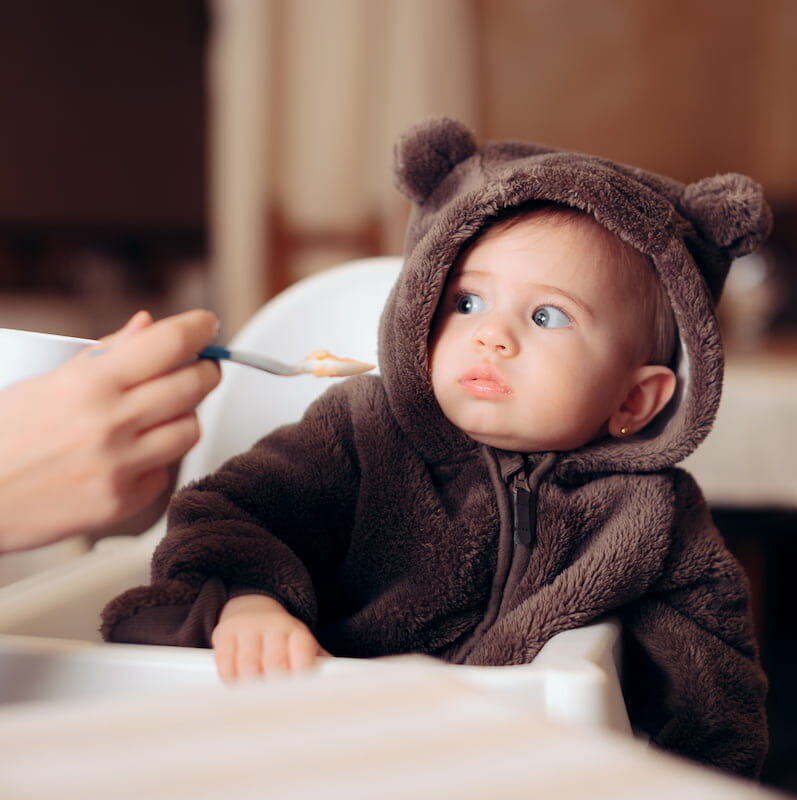
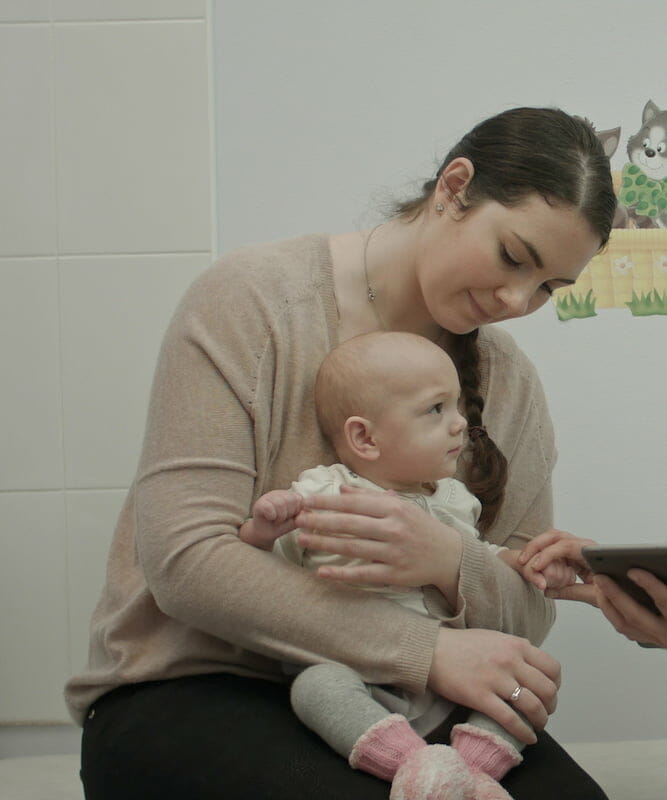
When should I seek medical help for my child’s allergies?
If you think that your baby could have a food allergy, you should raise this with your paediatrician. They will be able to arrange allergy testing for your child or make a referral to an allergy specialist. Before you exclude foods from your baby’s diet, you should consult with your paediatrician to ensure that they have the best nutrition possible.
If your baby is displaying eczema symptoms, you should be sure to see your doctor so that they can make a diagnosis. In some cases, baby eczema can be confused with cradle cap (oily or crusty patches on the baby’s scalp), so it is important to determine the difference.
If your baby is displaying hayfever symptoms, it is important to seek medical help in order to form an accurate diagnosis. Your paediatrician will be able to verify that the symptoms are the result of an allergy to pollen, rather than another cause or condition. Hayfever is linked to eczema or asthma, so it is likely that your doctor will do a complete check of your child’s medical history.
Related articles
Book your appointment
Clinic, remote appointments and home visits are available daily.
We can always find a time to suit you, so please do ask if you are having difficulty finding a suitable time.



